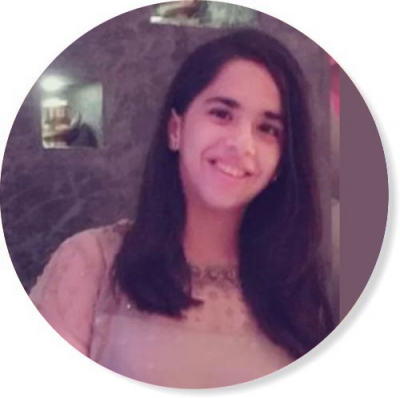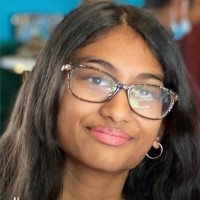An interview of young achiever Palakh khanna – Chief executive officer –break the ice

My journey from a student to a social entrepreneur and a youth changemaker has been amazing, and at the same time, quite enlightening. I'm very grateful to get the support of not only prominent individuals, but also my family, organisations, and even young changemakers. I have wanted to create change since I was 10. Initially, my efforts were restricted to protecting the environment. It was during the pandemic that I overheard a conversation between my mom and my domestic help where she was hesitating to talk about something as basic and natural as menstruation. That's when I realised that in order to change an individual's mindset, society's mindset needs to be changed. I set up Break The Ice with this mission in mind. Recently, I was invited as a panelist and a mentor for Business Blasters, the Delhi government's start-up programme.
Tell us about your organisation Break The ice.
Break The Ice is an international youth organisation working towards discussing all things taboo. We aim at creating a community where everyone can talk about anything they want to without any judgment and hesitation. We do believe we have started that chain of enlightenment by reaching 16,000+ individuals and expanding the team to 50+ young changemakers, across 10+ countries. We are a UN SDSN youth member organisation and are working with the Crimson Youth Entrepreneurship Society, a Why did you want to educate people to feel free to talk about anything?
I want society to understand that taboo and stigmatised topics need to be talked about because they are important. Unless we talk about them, they will simply be pushed under the carpet of ignorance and we will not grow as a society.
Why do you support SDG (Sustainable Development Goals) number four (Quality Education)?
SDG 4 talks about providing quality education to everyone. I believe it's the base to achieve all the other SDGs. Unless people are educated, they won't be able to take conscious action.
Tell us about The Cohort Collective programme.
The programme taught us about career development as well as personality development. I am honoured to be the youngest cohort of the programme and be among the eight people selected out of a pool of 100+ applicants. It's a year-long programme where we get ongoing support.
What are your future plans?
I love Psychology and English, and wish to explore them as a career option. I am also inclined towards the work the UN does and wish to be associated with it in whichever capacity possible. Along with my team, I want to take Break The Ice to a level where we become a global safe space.
Throw light on your other projects.
I am a mentor under the government's Desh Ka Mentor programme. I am working with GirlUp India as a cohort member. I am also a global lead ambassador for climate change, and a tutor for less privileged children.
Who is your inspiration?
It would definitely be my mom. She has always supported me in every venture of mine. Whether it is some help, or working with me till night, or just the confidence she has given me, she is truly the pillar of support in my life. Even when I thought of opening Break The Ice, she was the one who motivated and encouraged me to give action to my idea.
How do you manage time between studies and work?
I try to keep to-do lists for all the work I have. They usually work well for me and give me time to relax as well. Along with that, I try to finish my work well before the deadline so that it doesn't pile up in the end. I do have periods of procrastination, but it also helps me understand how well I work under pressure.
What are your hobbies?
I love to dance, I'm a classically trained dancer. I also love to write. Whether it's short stories or poems, I love to express my thoughts and emotions on paper. I'm a published poet, an achievement I'm proud of.
What is something about society that you wish to change?
I wish to be in a society where equality prevails. I want to erase every bias that exists in society, and eradicate discrimination as well as stigmatisation.
Picture Credit : Google


